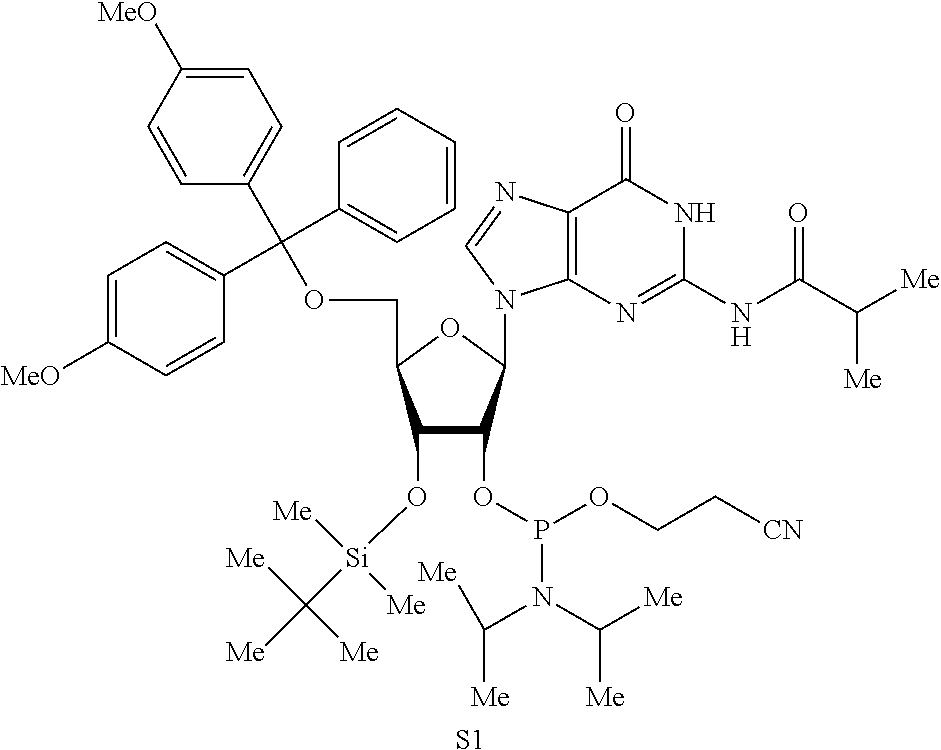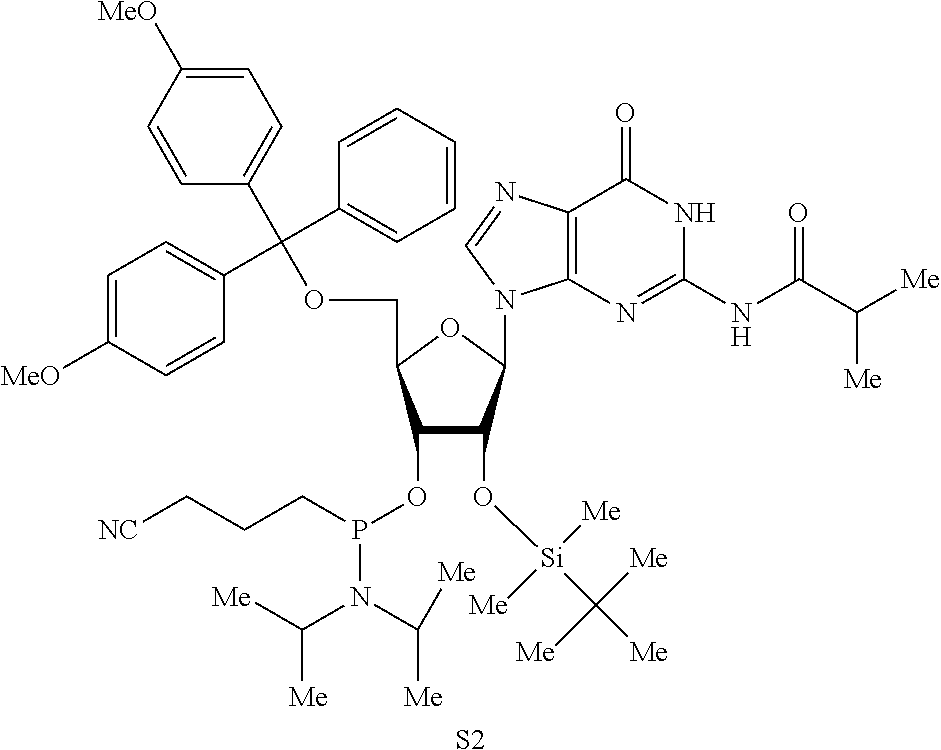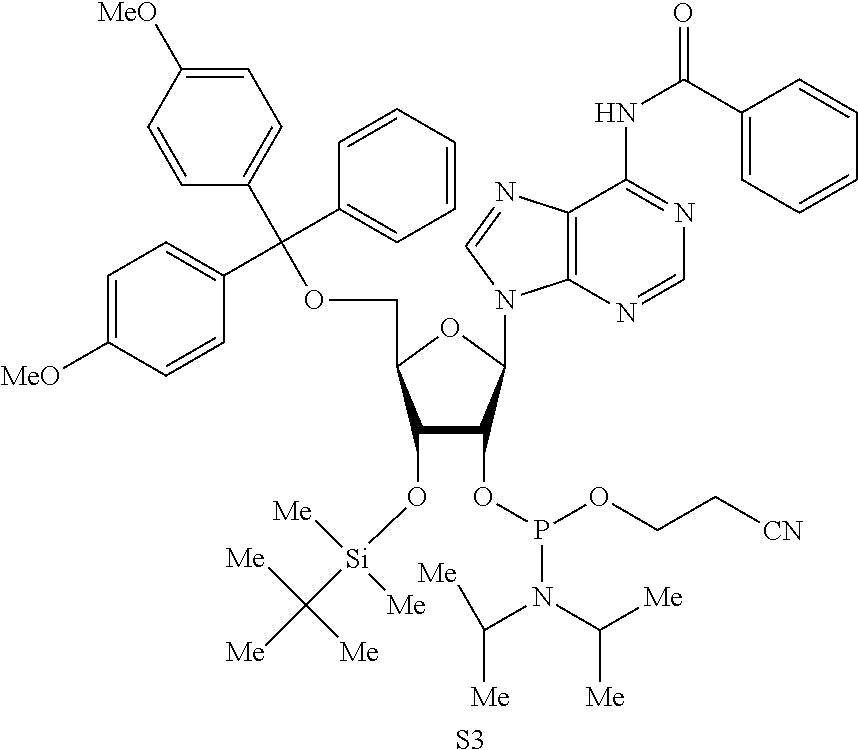Pharmaceutical targeting of a mammalian cyclic di-nucleotide signaling pathway
a technology of cyclic dinucleotide and drug targeting, which is applied in the direction of immunological disorders, instruments, antibody medical ingredients, etc., to achieve the effect of promoting an immune respons
- Summary
- Abstract
- Description
- Claims
- Application Information
AI Technical Summary
Benefits of technology
Problems solved by technology
Method used
Image
Examples
example 1
P-AMP is an Endogenous Second Messenger in Innate Immune Signaling by Cytosolic DNA
[0026]Host defense against foreign genetic elements is one of the most fundamental functions of a living organism. The presence of self or foreign DNA in the cytoplasm is sensed by eukaryotic cells as a danger signal or a sign of foreign invasion (I). DNA can be introduced into the cytoplasm by bacterial or viral infection, transfection, or ‘leakage’ from the nucleus or mitochondria under some pathological conditions that cause autoimmune diseases such as lupus. In mammalian cells, cytosolic DNA triggers the production of type-I interferons (IFNs) and other cytokines through the endoplasmic reticulum protein STING (also known as MITA, MPYS or ERIS) (2). STING recruits and activates the cytosolic kinases IKK and TBK1, which activate the transcription factors NF-κβ and IRF3, respectively. NF-κβ and IRF3 then enter the nucleus and function together to induce IFNs and other cytokines. DNA-dependent RNA po...
example 2
P-AMP Synthase is a Cytosolic DNA Sensor that Activates the Type-I Interferon Pathway
[0057]DNA was known to stimulate immune responses long before it was shown to be a genetic material, but the mechanism by which DNA functions as an immune stimulant remains poorly understood (1). Although DNA can stimulate the production of type-I interferons in dendritic cells through binding to Toll-like receptor 9 (TLR9) in the endosome, how DNA in the cytosol induces IFN is still unclear. In particular, the sensor that detects cytosolic DNA in the interferon pathway remains elusive (2). Although several proteins. including DAI, RNA polymerase III, IFI16, DDX41 and several other DNA helicases, have been suggested to function as the potential DNA sensors that induce TFN, none has been met with universal acceptance (3).
[0058]Purification and Identification of Cyclic GMP-AMP Synthase (cGAS).
[0059]We showed that delivery of DNA to mammalian cells or cytosolic extracts triggered the production of cycl...
example 3
P-AMP Containing Mixed Phosphodiester Linkages is an Endogenous High Affinity Ligand for STING
[0104]Innate immune sensing of microbial infections is mediated by germline-encoded pattern recognition receptors that include membrane proteins such as Toll-like receptors (TLRs) and cytosolic proteins such as NOD-like receptors (NLRs) and RIG-I like receptors (RLRs) (Iwasaki and Medzhitov, 2010; Ronald and Beutler, 2010; Takeuchi and Akira, 2010). As virtually all infectious microorganisms contain and need nucleic acids in their life cycles, the innate immune system has evolved to recognize the microbial DNA and RNA as a central strategy of host defense. Specifically, several TLRs are localized on the endosomal membrane to detect RNA or DNA in the lumen of the endosomes, whereas RLRs are responsible for detecting viral and bacterial RNA in the cytoplasm.
[0105]DNA is known to be an immune stimulatory molecule for more than a century, but how DNA activates the host immune system has not bee...
PUM
| Property | Measurement | Unit |
|---|---|---|
| composition | aaaaa | aaaaa |
| molecular mass | aaaaa | aaaaa |
| mass | aaaaa | aaaaa |
Abstract
Description
Claims
Application Information
 Login to View More
Login to View More - R&D
- Intellectual Property
- Life Sciences
- Materials
- Tech Scout
- Unparalleled Data Quality
- Higher Quality Content
- 60% Fewer Hallucinations
Browse by: Latest US Patents, China's latest patents, Technical Efficacy Thesaurus, Application Domain, Technology Topic, Popular Technical Reports.
© 2025 PatSnap. All rights reserved.Legal|Privacy policy|Modern Slavery Act Transparency Statement|Sitemap|About US| Contact US: help@patsnap.com



